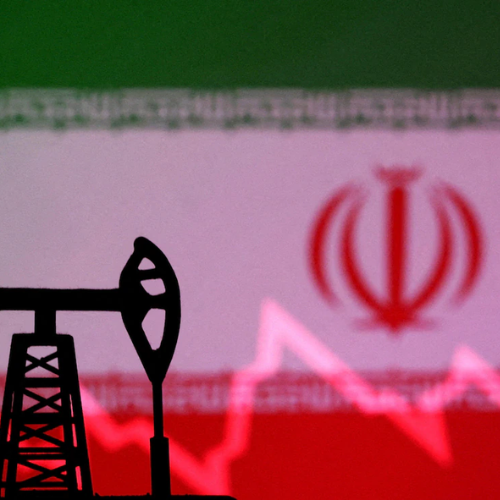The United States has announced fresh sanctions on Iran, specifically targeting its oil trade. This comes after a stern letter was sent by the US president to Iran’s Supreme Leader. In the letter, the US leader called for new nuclear talks while warning of possible military action if Tehran refused.
On Thursday, the US Department of the Treasury’s Office of Foreign Assets Control (OFAC) declared that new restrictions had been placed on several companies and ships involved in selling Iranian oil. Among them was a Chinese company known as Luqing Petrochemical, which reportedly purchased millions of barrels of crude oil worth nearly half a billion dollars. This company is referred to as a “teapot refinery,” a term used for small, independent refineries in China.
The US government claims that this oil trade is being used to fund activities linked to terrorism and Iran’s nuclear program. The shipments were allegedly carried out using ships connected to groups labeled as terrorist organizations by Washington.
Targeting Iran’s Oil Trade
In addition to targeting the Chinese refinery, the US also imposed restrictions on 19 entities and ships that are part of Tehran’s secretive oil shipping network. These vessels, often referred to as a “shadow fleet,” transport millions of barrels of Iranian crude oil worldwide. The US believes that this hidden trade helps Tehran earn billions of dollars while avoiding sanctions.
The sanctions are based on Executive Order 13902, which gives the US the authority to punish companies and individuals involved in Tehran’s petroleum and petrochemical industries. Another company was also sanctioned under a different order, Executive Order 13846, which focuses on those who engage in major transactions related to Iranian oil.
The US Treasury Secretary stated that the goal of these sanctions is to block Iran’s sources of income and prevent it from financing groups that the US considers dangerous. The US leader has reinstated a strict approach toward the country, similar to what was followed during his previous time in office. The strategy aims to pressure Tehran into agreeing to new terms on its nuclear program.
Iran’s Response to the Ultimatum
Iran’s reaction to these developments has been strong. The country’s foreign minister stated that the letter from the US president was more of a “threat” than a genuine offer for dialogue. He added that the country was carefully analyzing the letter before making any official response.
The Supreme Leader dismissed the US message, calling it an attempt to manipulate global opinion. According to him, the US is trying to act as if it wants to negotiate while putting Tehran in a difficult position. Officials also confirmed that they are evaluating the details of the letter before responding.
The Two-Month Deadline
The letter, delivered on March 12 through a diplomat from the United Arab Emirates, reportedly included a deadline of two months for Iran to agree to a new nuclear deal. This means that if they do not respond positively within this period, the US could take further action.
The US had previously withdrawn from a nuclear agreement signed in 2015, which was meant to prevent Iran from developing nuclear weapons. After the US left the deal, Tehran initially continued to follow its terms but later started reducing its commitments. Efforts to restore the agreement under the previous US administration failed, as Tehran insisted that all sanctions be lifted before any new deal could be discussed.
On Thursday, Iran’s foreign minister repeated that his country would not engage in talks under pressure. He made it clear that the country would not negotiate directly with the US while facing threats and economic restrictions.
With these new sanctions, tensions between the US and Iran have once again escalated. For now, Tehran is weighing its options, while Washington continues to apply economic pressure in an attempt to bring it to the negotiating table.


